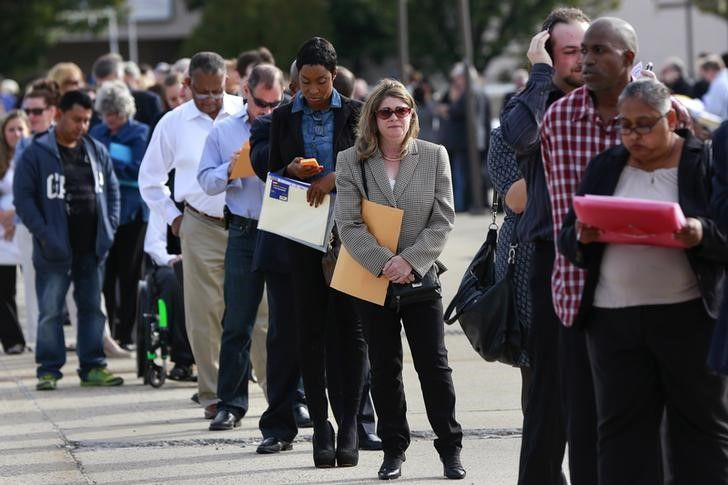Jobs Report December 2014: US Economy Added 252,000 Jobs Last Month, Unemployment Rate Falls To 5.6%

The U.S. added 252,000 jobs last month, dropping the unemployment rate by 0.2 percentage point to 5.6 percent, the Labor Department said Friday. Economists polled by Thomson Reuters had expected net job growth of 240,000 last month.
In November, the economy added a net 353,000 jobs, more than economists had expected and an upward revision from the 321,000 initially reported last month.
Employers have added an average of 224,000 jobs over the previous 12 months. Over the previous six months the average has topped 250,000 jobs added per month.
“At the current pace of job growth, the economy will be back to full employment by early 2016,” Moody's Mark Zandi told Politico.
The average hourly earnings for private-sector workers decreased by 5 cents to $24.57 after increasing 0.4 percent to $24.66 in November, double the average monthly gain in the prior 12 months.
“Today’s job’s report – again – was very strong and shows the labor market is maturing and economy performing soundly," Jack Kleinhenz, chief economist for the National Retail Federation, said in a email. “However the earnings data was a bit disappointing."
The healthy jobs growth in the economy won't matter to a significant portion of Americans. For most workers, real wages have fallen or remained flat since the 1970s. Many Americans who work part-time jobs want to work full time, and nearly two-thirds who are able to work have dropped out of the labor force, the highest portion opting out of work since the 1970s. The labor-force participation rate edged down by 0.2 percentage point to 62.7 percent.
The number of Americans who have been out of work for 27 weeks or longer was essentially unchanged last month, at 2.8 million, or 31.9 percent of the unemployed.
The so-called U-6 unemployment rate – which includes people who are working part time but want more hours and those marginally attached to the workforce – stood at 11.2 percent in December, down from 11.4 percent in November and 13 percent in December 2013.
© Copyright IBTimes 2024. All rights reserved.












